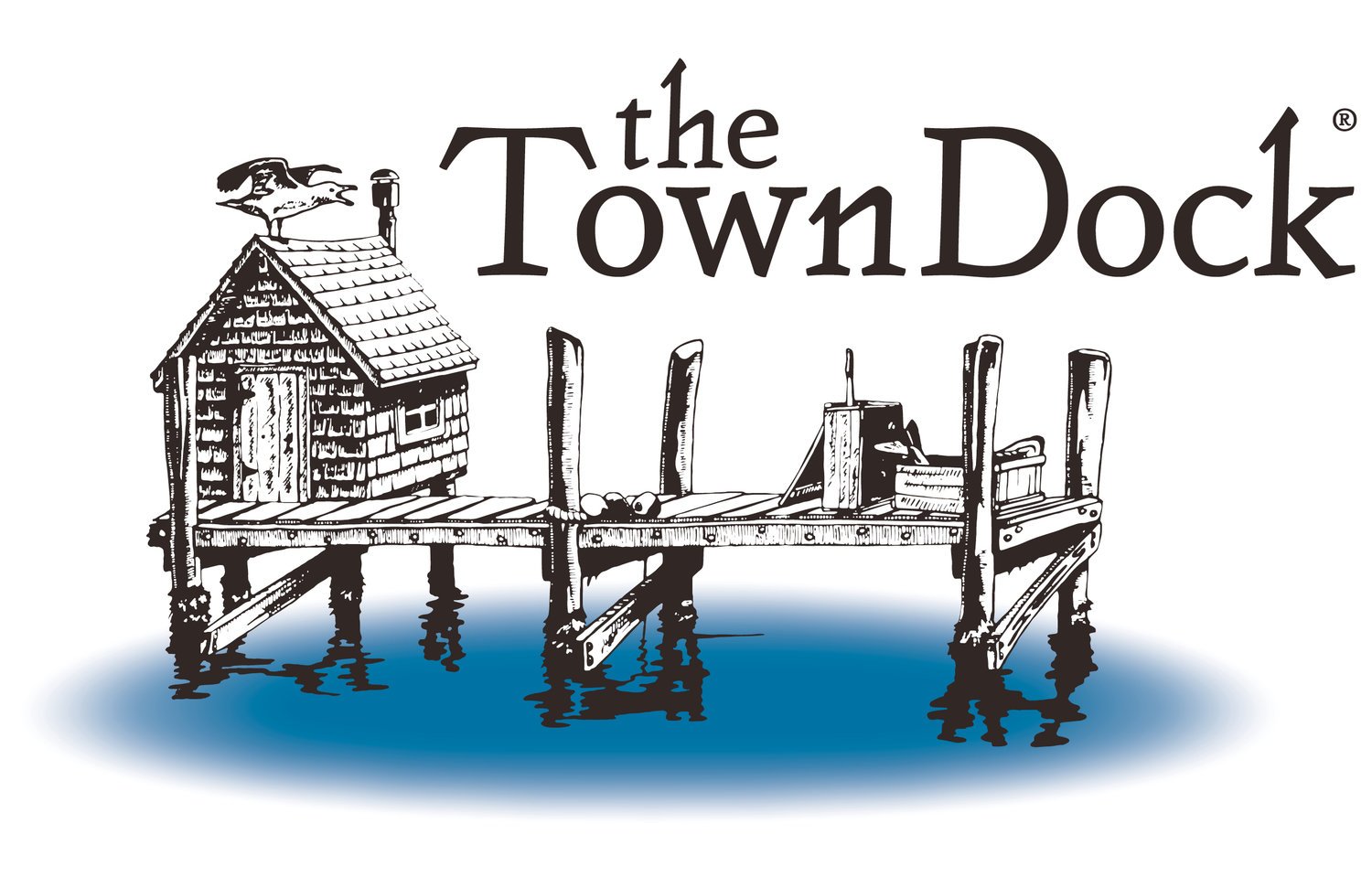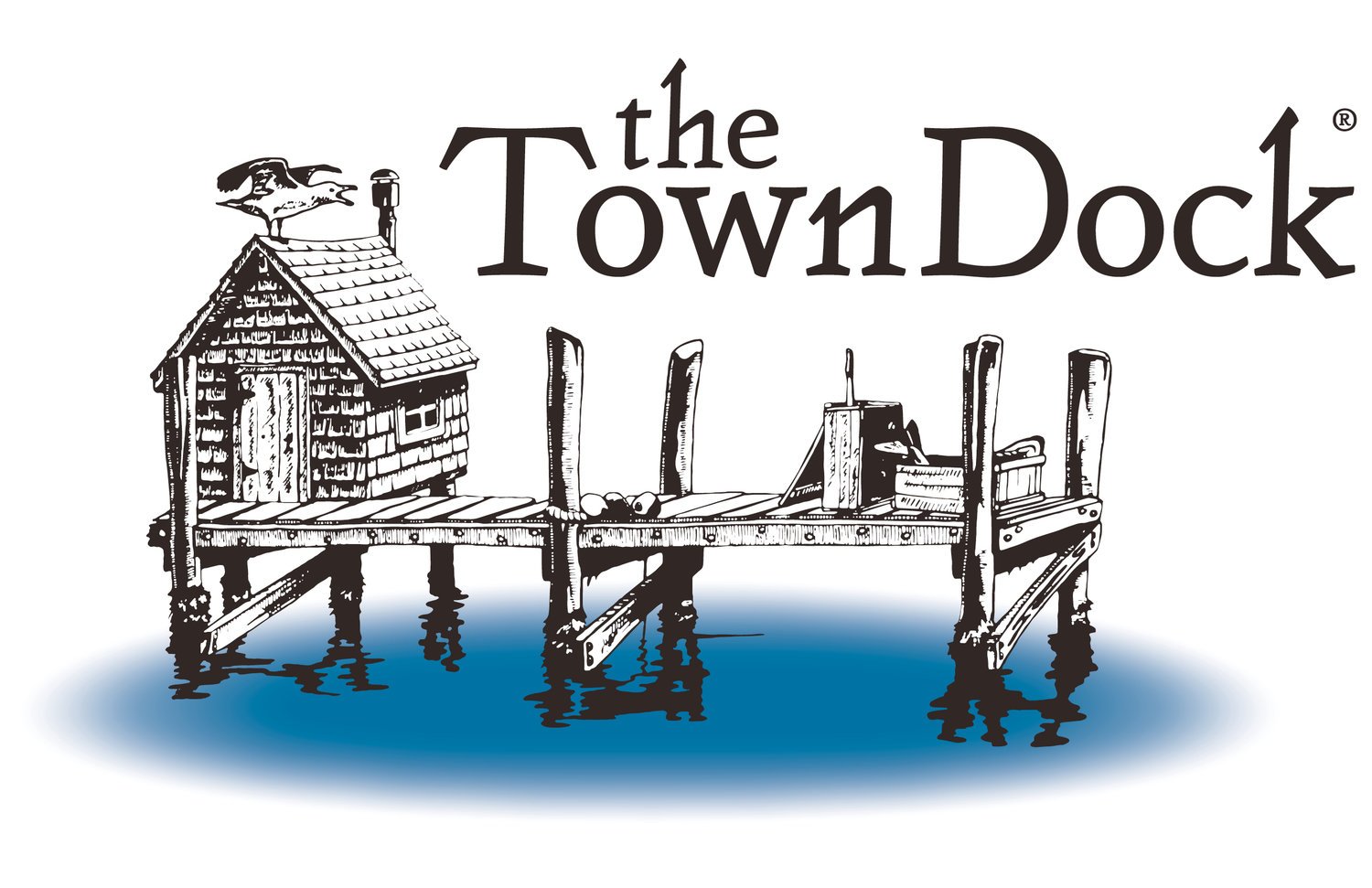Town Dock & UMaine Make New Foods from Squid Fins
Orono, Maine — Squid has become a staple menu item and ingredient in many seafood restaurants, whether it’s fried, baked, grilled or served raw. In North American markets, however, only about half of each squid is used for culinary applications.
To reduce food waste and open new markets, a University of Maine-led team of researchers and students will devise new frozen food products that can be created from squid fins, one of their byproducts. The project is supported by $229,376 from the NOAA Fisheries Saltonstall-Kennedy Competitive Grants Program. The Town Dock, wholesale calamari product company in Narragansett, Rhode Island, is also helping to support the program.
The group, led by UMaine professor of food science Denise Skonberg, will devise and develop several frozen food prototypes at the Dr. Matthew Highlands Food Pilot Plant in Hitchner Hall using processed fins from North Atlantic longfin and shortfin squid. Possible goods, which will be designed for preparation at home or in restaurants, may include frozen appetizers, entrees, nuggets and sliders. Researchers will recruit people to sample their prototype food products at the UMaineSensory Testing Center and evaluate them based on appearance, texture, aroma and flavor.
As part of their initial work, UMaine researchers recently invited local chefs to prepare various dishes with squid fins, some of which they may be able to freeze. Those dishes included meatballs, egg rolls and dumplings, all made from squid fins.
Skonberg is working on the project with Rob Dumas, food science innovation coordinator at UMaineand facility manager for its School of Food and Agriculture, and Brianna Hughes, vice president of operations, supply chain and quality for The Town Dock. The team plans to recruit a graduate student and several undergraduate students who will complete laboratory and sensory analyses and assist with processing and prototype ideation and development.
Commercial squid fishing and processing brings in millions of dollars annually to New England and mid-Atlantic states, including Rhode Island, Massachusetts, New Jersey and New York. In 2022, 40.4 million pounds of longfin squid were harvested, valued at $60.2 million, and 12 million pounds of shortfin squid were landed, valued at $6.4 million, according to NOAA Fisheries.
“I am really pleased that we have been able to build a multidisciplinary team, including food scientists, professional chefs and seafood processors for this research and development effort,” Skonberg says. “Although our overall goal is to help reduce seafood waste in the food industry, training our students in industry-relevant research is another big plus.”
Chefs from the New England region will be recruited to help develop ideas for new products, prepare and taste them in an innovation challenge. Once the final prototypes are developed, the chefs also will be asked to test them by preparing them for various applications, then provide feedback on their quality, ease of handling and preparation, likeliness of use in restaurants and price value.
In addition to devising new food products, researchers will investigate how to effectively process and freeze wings from the two squid species, and determine how short-term frozen storage affects the quality of the frozen products made from them. The team plans to share their results with North Atlantic squid processors, product developers, foodservice professionals, seafood technologists and consumers in a variety of ways to benefit the industry at large.
“It’s exciting to see a project with such potential,” says Hughes. “Reducing food waste while also bolstering profitability is a win for everyone.”
For more information on this project, please contact UMaine's Marcus Wolf, 207.581.3721; marcus.wolf@maine.edu
About the University of Maine: The University of Maine, founded in Orono in 1865, is the state's land grant, sea grant and space grant university, with a regional campus at the University of Maine at Machias. UMaine is located on Marsh Island in the homeland of the Penobscot Nation. UMaine Machias is located in the homeland of the Passamaquoddy Nation. As Maine's flagship public university, UMaine has a statewide mission of teaching, research and economic development, and community service. UMaine is the state's public research university and a Carnegie R1 top-tier research institution. It attracts students from all 50 states and 92 countries. UMaine currently enrolls 11,571 undergraduate and graduate students, and UMaine Machias enrolls 763 undergraduates. Our students have opportunities to participate in groundbreaking research with world-class scholars. UMaine offers 77 bachelor's degrees and six undergraduate certificates, as well as more than 100 degree programs through which students can earn doctoral or master's degrees, professional master's degrees, and graduate certificates. UMaine Machias offers 18 associate and bachelor's degrees, and 14 undergraduate certificates. The university promotes environmental stewardship, with substantial efforts campuswide to conserve energy, recycle and adhere to green building standards in new construction. For more information about UMaine and UMaine Machias, visit umaine.edu and machias.edu.
About The Town Dock: For more than 40 years, The Town Dock has focused on offering both the highest quality wild-caught calamari and the very best service. A market leader in foodservice and retail calamari, we are a vertically integrated seafood company located on the water in Point Judith, Rhode Island. We partner with a dedicated fleet of fishing vessels, local fishermen, and global suppliers, and offer a full suite of domestically-caught and ethically-imported squid species and fresh local fish. With a food-focused sales team, recipe inspirations, squid facts, and more, we have calamari for every kitchen.

